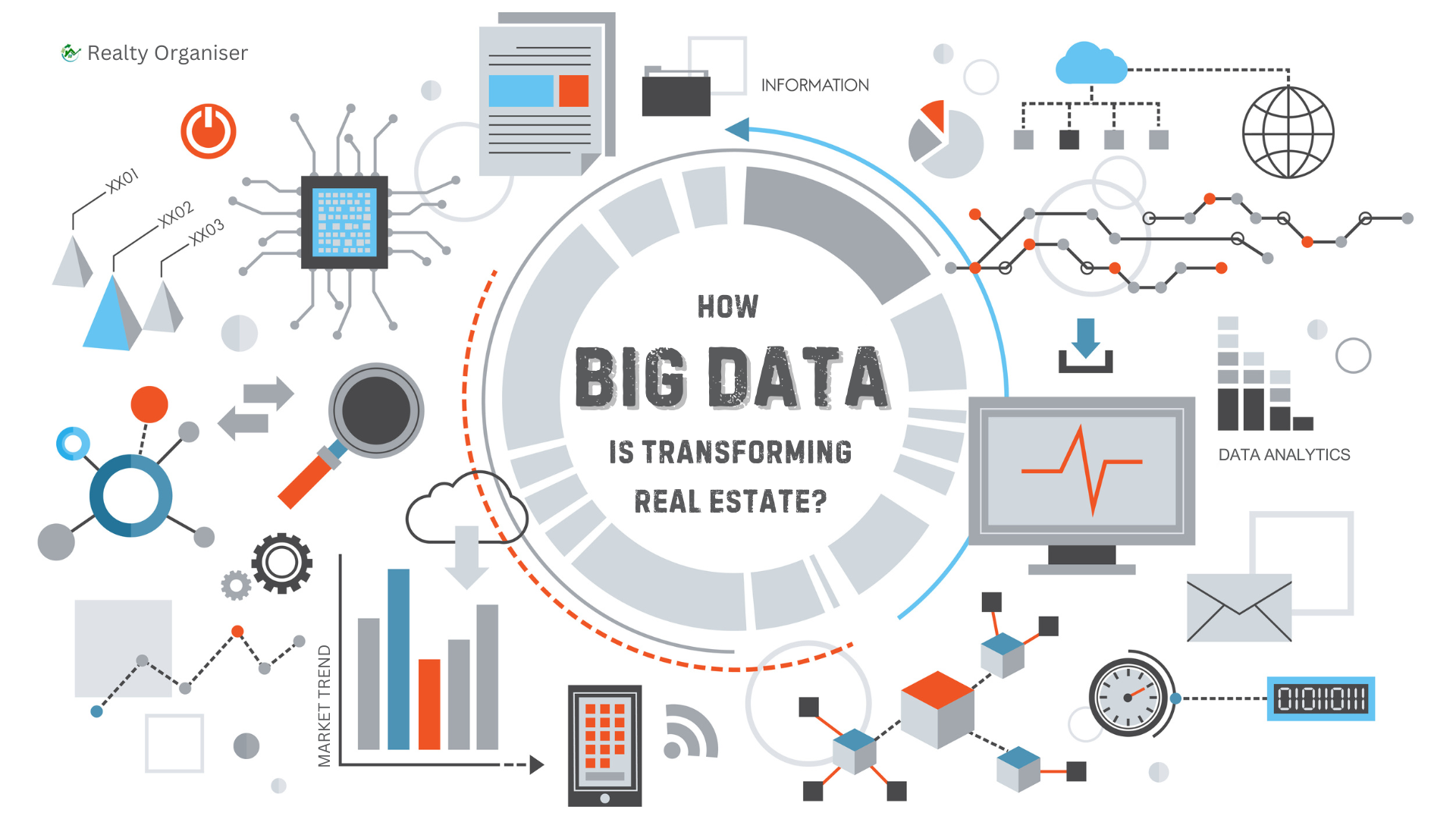
How Big Data is Transforming Real Estate?
Real estate, a sector known for its traditional approach, is undergoing a significant transformation, thanks to big data. But what exactly is big data, and how is it reshaping the real estate industry? Let's take a look at this fascinating intersection of technology and property.
• What is Big Data?
Big data refers to the huge amount of structured and unstructured data generated daily. It includes everything from social media posts and online transactions to sensor data and mobile device interactions. The power of big data lies in its ability to be analyzed for insights that can lead to better decision-making and strategic planning.
• The Value of Big Data in Various Sectors
Before we look into its impact on real estate, it's essential to understand that big data is revolutionizing various industries, from healthcare and finance to retail and entertainment. Its ability to uncover patterns, trends, and correlations is invaluable in today's data-driven world.
Big Data in Real Estate: A New Frontier


The real estate industry has traditionally relied on experience, intuition, and market knowledge. However, the advent of big data is opening up new possibilities and opportunities.
• Predictive Analytics
One of the most significant advancements brought about by big data is predictive analytics. By analyzing historical data, real estate professionals can predict future trends, such as housing market fluctuations and demand for specific property types.
• Market Analysis
Big data allows for more comprehensive and accurate market analysis. Real estate companies can gather and analyze data from various sources to identify emerging markets, evaluate property values, and assess investment opportunities.
• Customer Behavior Insights
Understanding customer behavior is crucial in any industry, and real estate is no exception. Big data analytics provide insights into buyer preferences, search patterns, and decision-making processes, enabling agents and developers to tailor their strategies and offerings accordingly.
Benefits of Big Data in Real Estate
The integration of big data into the real estate sector offers numerous benefits that are revolutionizing the way business is conducted.
• Enhanced Decision Making
With access to comprehensive and up-to-date data, real estate professionals can make more informed decisions. Whether it's pricing a property competitively or identifying the best locations for new developments, big data provides the insights needed to stay ahead of the curve.
• Improved Property Valuation
Accurate property valuation is crucial for both buyers and sellers. Big data analytics enable more precise and objective valuation methods by considering various factors, such as location, market trends, and property characteristics.
• Personalized Marketing
In today's competitive market, personalized marketing is essential for attracting and retaining customers. Big data allows real estate companies to create targeted marketing campaigns based on customer preferences, behaviors, and needs, resulting in higher conversion rates and customer satisfaction.
Challenges and Concerns
While big data offers numerous benefits, it also presents some challenges and concerns that need to be addressed.
• Data Privacy and Security
One of the most significant concerns associated with big data is data privacy and security. With the increasing amount of data being collected and stored, there's a risk of unauthorized access, data breaches, and misuse of personal information.
• Integration with Traditional Systems
Integrating big data analytics with traditional systems and processes can be challenging. Real estate companies need to invest in the right technologies, tools, and training to ensure seamless integration and maximize the benefits of big data.
The Future of Big Data in Real Estate
As technology continues to evolve, the potential applications of big data in real estate are limitless.
• Artificial Intelligence and Machine Learning
Artificial intelligence (AI) and machine learning (ML) are transforming the way big data is analyzed and utilized in real estate. These technologies can automate data collection, identify patterns, and predict future trends more efficiently than ever before.
• Virtual Reality and Augmented Reality
Virtual reality (VR) and augmented reality (AR) are also playing a significant role in the future of real estate. These technologies allow potential buyers to explore properties remotely and visualize spaces in ways that were previously impossible, enhancing the buying experience and speeding up decision-making processes.
Conclusion
Big data is undeniably transforming the real estate industry, offering new opportunities for enhanced decision-making, improved property valuation, and personalized marketing. While challenges such as data privacy and integration persist, the future looks promising with advancements in AI, ML, VR, and AR. As real estate professionals continue to embrace and harness the power of big data, the industry will undoubtedly evolve, providing better experiences and outcomes for all stakeholders involved.
